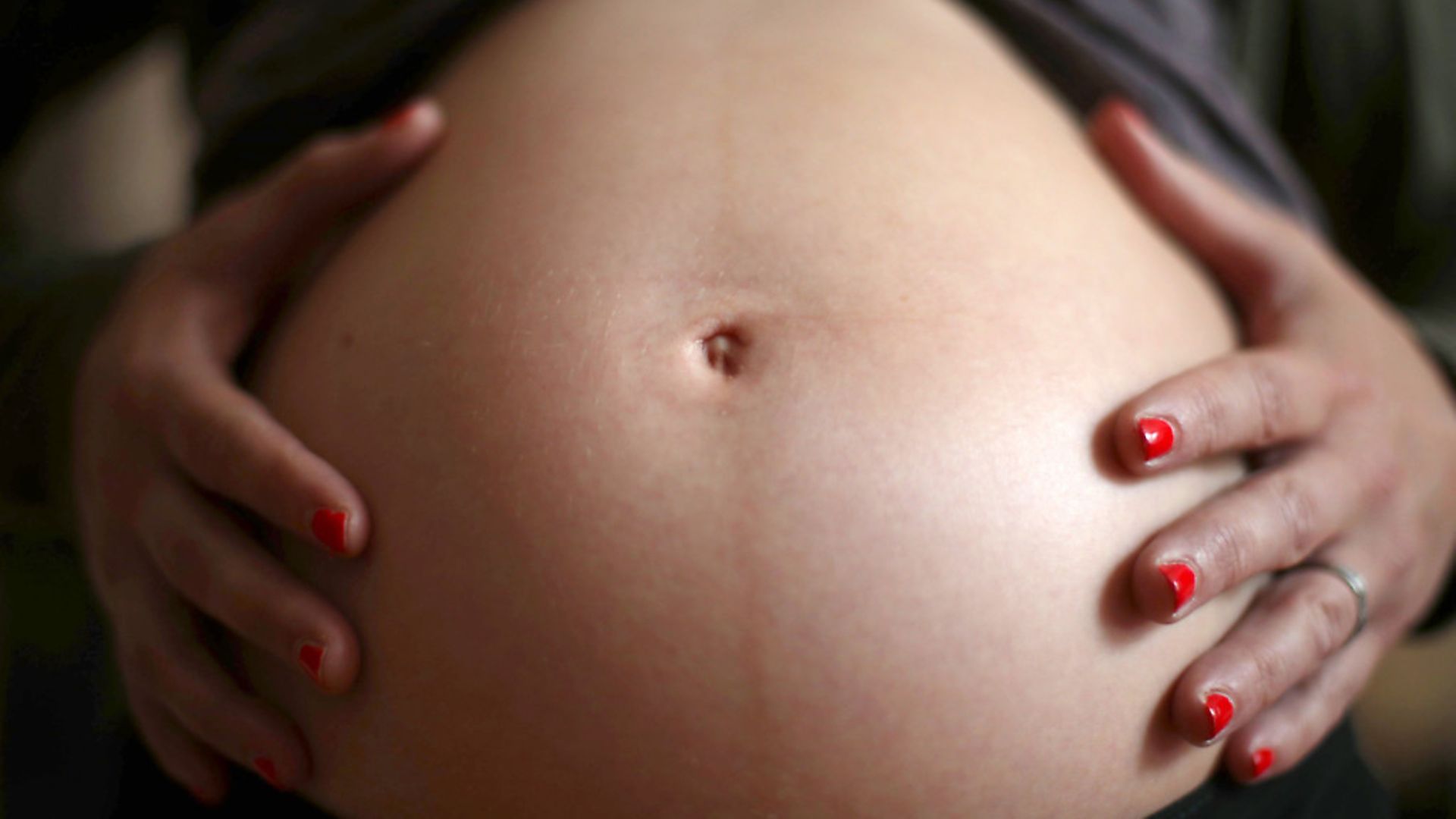
Society romanticises childbirth to the point women are not given a chance to cope with what is really involved, says CAROLINE CRIADO PEREZ
The first thing you notice is that you’re tired all the time. Then the nausea starts.
You will start feeling dizzy and you may faint. As the condition progresses you may experience extreme itching on your abdomen, your palms and your feet. Parts of your body may start to swell up: your feet (sometimes by up to two sizes), your hands. You may experience leg cramps and extreme pain from your back down to your foot.
Other symptoms may include nosebleeds, haemorrhoids, constipation, inability to sleep and a constant need to urinate. In the later stages, you may find small balls of flesh growing on your neck, your groin, and in your armpits.
No, you’re not dying of a rare and terrible disease – you’re pregnant. And this is a relatively straightforward pregnancy.
Things don’t get easier after the birth. The coiffed image Kate Middleton presents, hours after delivery, is a discreet veil. A lie. Under that natty outfit she will be wearing bulky maternity pads to absorb the up to six weeks of bleeding she has just begun. This blood can include clots up to the size of a small orange.
She may also be sporting several stitches: up to 79% of vaginal deliveries cause tearing. They can take up to 12 weeks to heal (sometimes longer — especially if your enterprising doctor has added in a ‘husband stitch’ which is exactly what it sounds like and sometimes never heals, causing pain in sex for life).
Other results of pregnancy and childbirth can include: urinary incontinence, PTSD, post-natal depression and prolapse (when your organs drop into your vagina). And because pregnancy stretches a woman’s pelvis (to accommodate the baby and prepare for delivery), difficulty walking, sometimes for months.
‘The worst thing is, no one talks about it,’ one woman told me. ‘I sat through hours of childbirth class, but there was no discussion of tearing or pelvic floor rehab. For weeks after my baby was born I woke up drenched with sweat, sheets soaked, and I had to Google to know it was normal.’
The problem with the way we prettify the reality of pregnancy and childbirth to make it more tidy and palatable is not just that it leaves women unprepared for what they’re about to go through. It’s also that society at large doesn’t appreciate just what a huge undertaking it is, and therefore we don’t make adequate provision for it — not least in parliament.
Jo Swinson, the Liberal Democrat MP for East Dunbartonshire was due to give birth on Monday, two days before MPs vote on whether or not they will be allowed a meaningful vote on the Brexit deal. It’s an important vote. Possibly the most crucial of the whole Brexit process to date. And there is no provision in parliament for Swinson to be able to vote unless she turns up in person, all the way from Scotland, hours-old wailing baby and maternity pads in tow.
The only option currently available to her is ‘pairing’ which is when an MP who would vote the opposite way to you agrees to abstain. This is a privilege that can only be granted by the whips and ‘nine times out of ten, in uncontentious votes,’ says Jess Phillips, MP for Birmingham Yardley, ‘of course they could arrange pairs’.
But this is not an uncontentious vote. We have a hung parliament. It’s only been a few days since Theresa May reneged on her deal over this very vote with Dominic Grieves. The government majority on this may well go down to a single vote. ‘Do you think Jo Swinson can feel confident?’ asks Phillips.
Even when women are granted a pairing and it is upheld, they can face abuse later on from constituents and media who don’t understand the pairing system: Lucy Powell was branded ‘Britain’s second-laziest MP’ by The Sun because her voting record simply showed a series of abstentions when in fact she was on maternity leave. So lazy not to vote when you’re literally in labour, amirite, ladies?
In February this year, the House of Commons passed a resolution calling for MPs to be entitled to cast votes in the House by proxy for a period of time after the birth or adoption of a child. In May this year the Procedure Committee published its recommendations about how to implement such a system. And since then, despite plenty of time for the government to table a motion (and pass it with immediate effect, as they did with benefit sanctions): crickets.
Jess Phillips smells a rat. ‘All of the women who are pregnant at the moment would vote for a meaningful vote on Brexit. Every single one of them. There are no government pregnancies at the moment,’ she adds.
If they have to, Phillips says, MPs will table the motion via the backbench business route, but that will take time, and by then it will be too late for the four women who are currently pregnant. Meantime, Swinson has at least been granted a pairing. As Jess Phillips tweeted, it is to be hoped that it will be honoured.
Warning: Illegal string offset 'link_id' in /mnt/storage/stage/www/wp-includes/bookmark.php on line 357
Notice: Trying to get property 'link_id' of non-object in /mnt/storage/stage/www/wp-includes/bookmark.php on line 37






